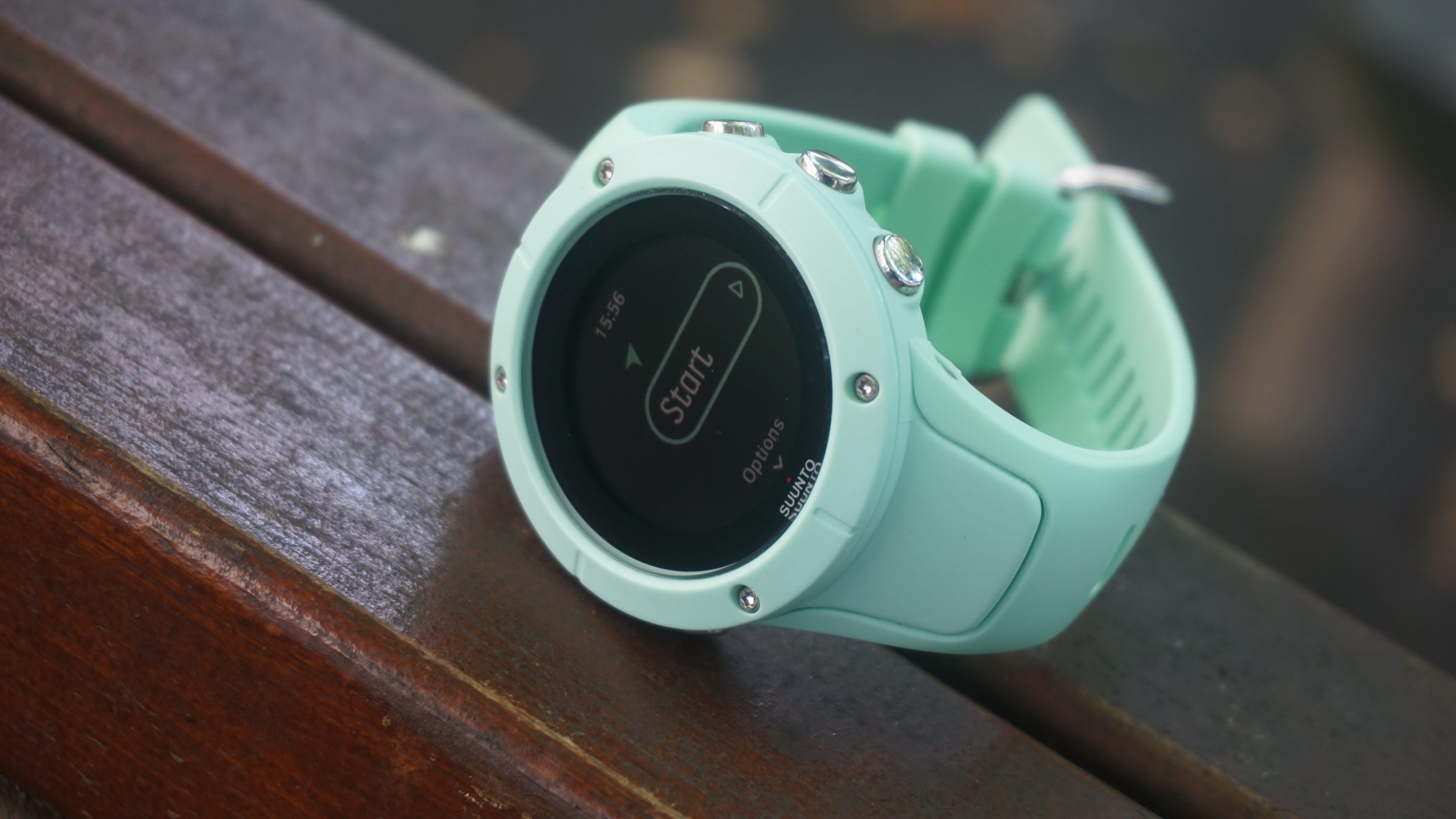TechRadar Verdict
A clean and powerful sport-tracking watch that offers a crazy range of activities to track. The low price and amazing heart rate accuracy appeal, but the app and fitness tracking leave a lot to be desired.
Pros
- +
Amazing heart rate accuracy
- +
Huge range of sports to track
- +
Decent battery life
Cons
- -
Poor app
- -
Sleep tracking useless
- -
Chunky design
Why you can trust TechRadar
The Suunto Spartan Trainer Wrist HR is the watch that's supposed to bring the brand into the new hybrid era of running watches, making it a quality exercise tracker as well as a strong smartwatch.
With a wrist-based heart rate monitor, smart notifications and multi-day battery life, the Spartan Trainer Wrist HR is a sleeker version of the similarly-crazily-named Suunto Spartan Sport Wrist HR – and it improves on it impressively.
It's got all the right bits in there – namely, multi-sport support with many metrics to help you get faster at your chosen discipline – but does it justify its price given that every other brand is picking up its game at the moment?
Suunto Spartan Trainer HR price and availability

The Trainer Wrist HR costs £219 / $299 / AU$399, which isn't the most expensive on the market for a multi-sport watch, and with smart notifications on board it rivals some choices from top brands like Garmin and TomTom.
It was launched in August 2017, so you'll be able to pick it up now.
Slimmed-down design
The Suunto Spartan Trainer Wrist HR is, as mentioned, an improved version of the Wrist HR, which is a godsend – that thing was one of the chunkiest watches we'd worn in modern times, and thankfully the new model is a lot sleeker.
The Trainer Wrist HR has a neat 'frost blue' color that we tried out – some people we showed it to called it feminine, but it feels nicely unisex in our opinion and it's a nice option to have.
You can also get it gold and white, steel and black, ocean blue and all-black, so you can choose between a stylish look and a sportier one (although sadly the straps can’t be changed).

But the best thing is that the watch is now, well, more watch-shaped. It's slimmer and fits closer to the wrist, and the strap has been improved to make it easier to slip into the buckles, something that drove us crazy on the previous iteration.
It’s still not as slim as many other watches on the market though, including those that function as sports and fitness trackers.
The Spartan Sport Trainer is not too heavy, but you'll be aware you're wearing it. We're used to wearing larger sports watches daily, and the Trainer Wrist HR is just about acceptable for daily use. Something like the Garmin Forerunner 235 feels sleeker and works better as a daily timepiece.
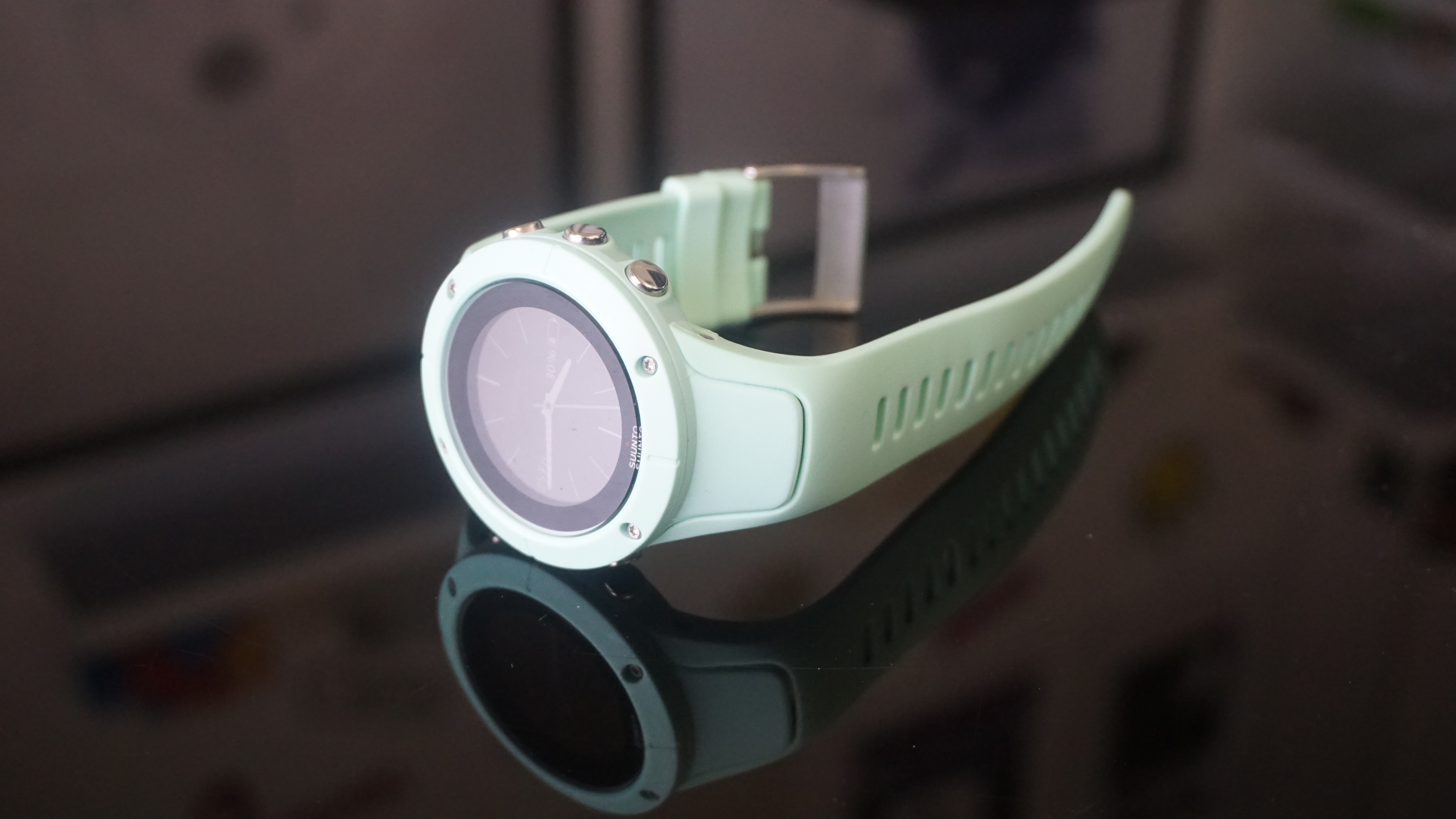
Great heart rate monitor
One of the things we've always been impressed with on Suunto watches of late is the heart rate monitor - we trust them probably more than any other brand on the market.

We're always slightly wary of any wrist-based pulse monitoring, but during our runs we noticed that the accuracy was pretty high and followed our efforts almost perfectly.
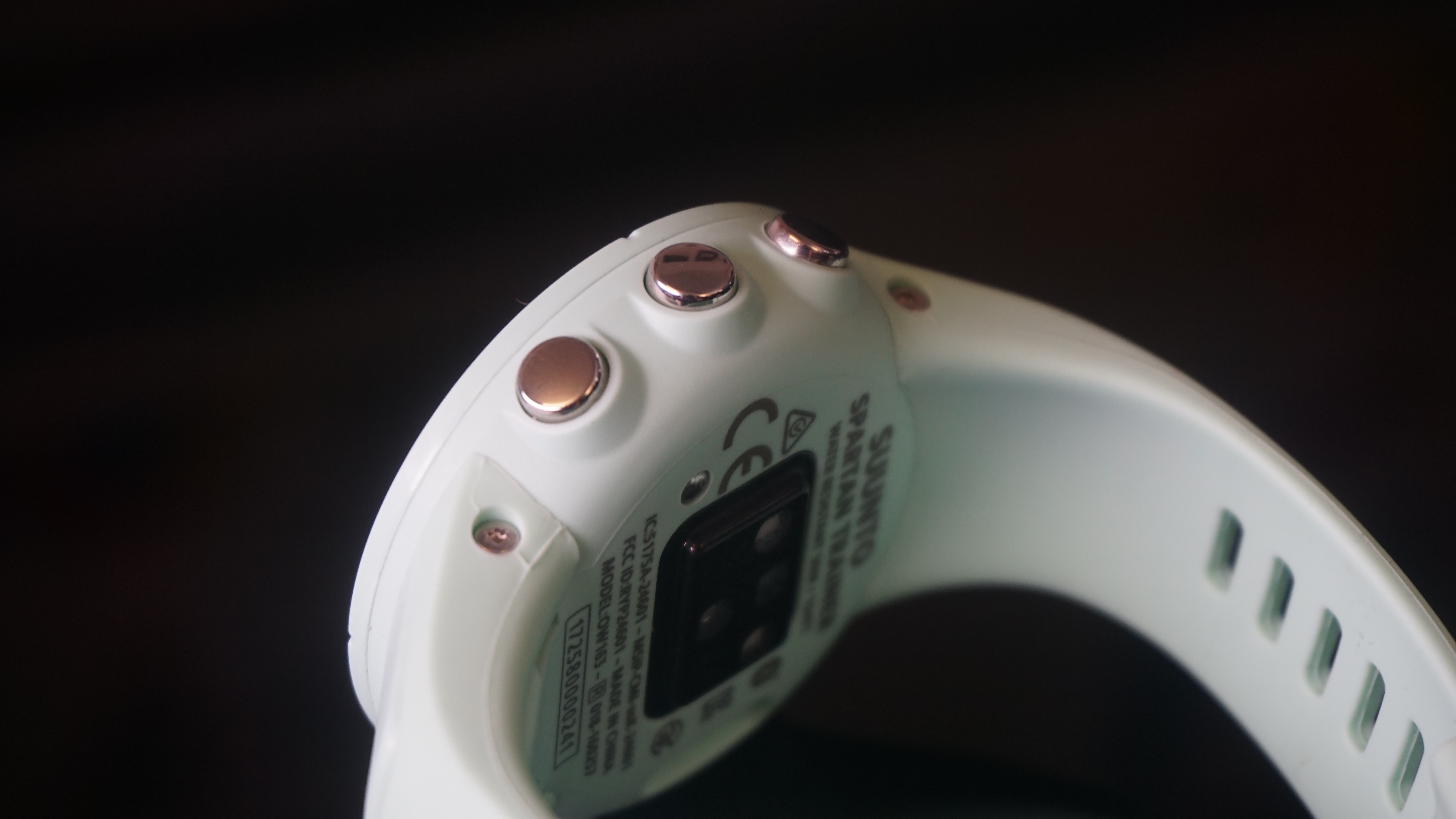
We’ve got a range of different watches on test at the moment, but if there was a time when we didn’t have a chest strap to hand we felt incredibly confident that this device would do the job almost just as well… and sometimes better.
We say almost, as there were some anomalous times where the pulse reading shot right up during easy running, but on the whole the Suunto Spartan Trainer Wrist HR is one of the best watches for ditching the chest strap.
A decent workout buddy
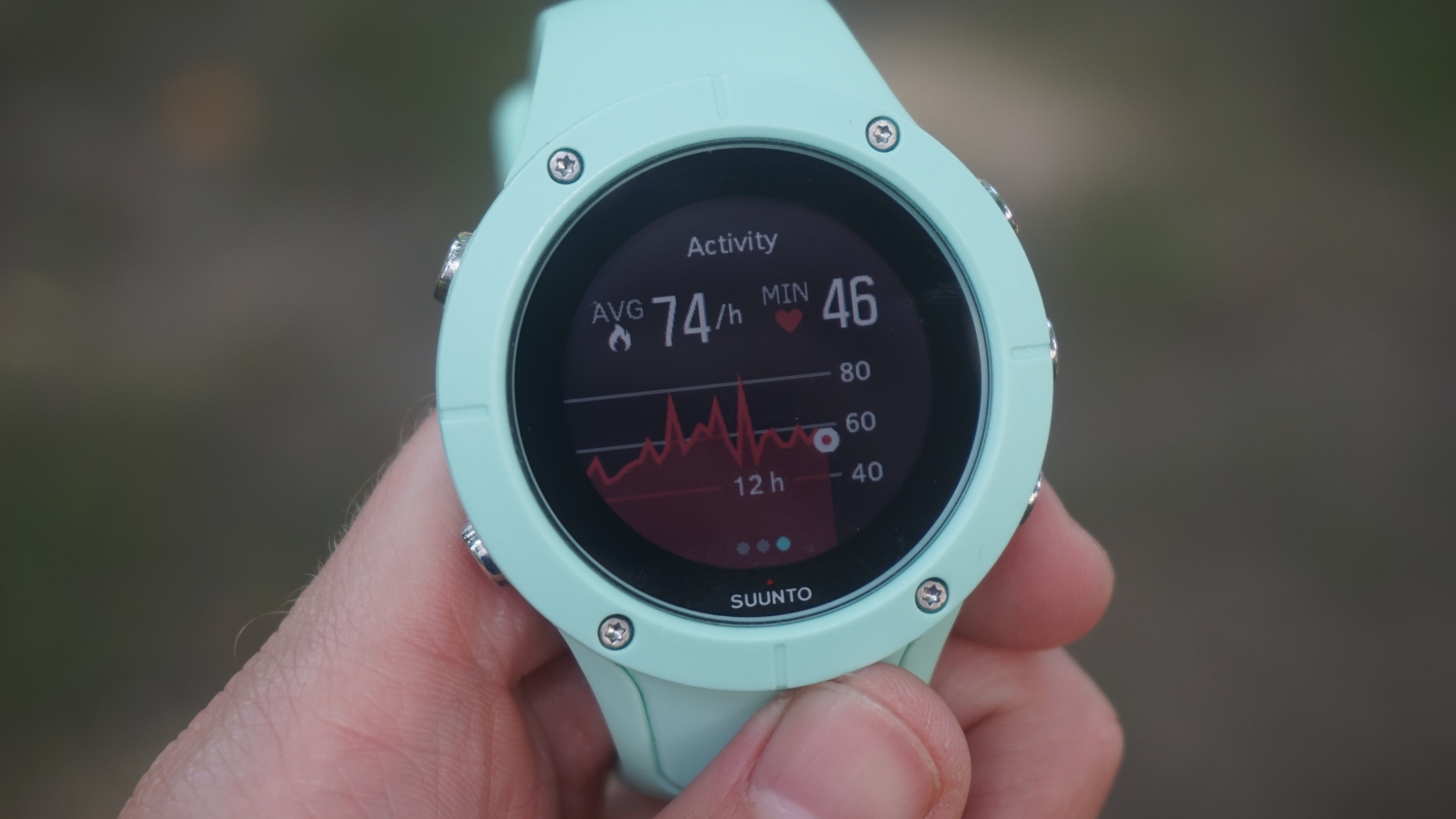
Given Suunto has been a dedicated activity-tracking brand for 80 years, you'd expect decent performance from this watch - and you'll generally get it.
The GPS lock speed can be a bit slow the first few times you use the watch, but the data it pulls from the phone every time you sync seems to speed things up well after a short while and you’ll be away in no time, with minimal bouncing around in the cold waiting for GPS to click in.
(That said, more of a notification that GPS is ready to go would be rather nice).
When working out, the display (which offer a 218 x 218 resolution) is a touch small, but legible. It's annoying that you can't customise the screens you see from the watch itself (rather, you have to use the app) but the data is rich, and we're big fans of the heart rate graph that shows how hard you've been working during a run.
The button configuration is just, well, wrong though. There are three shiny buttons on the right, and rather than using those at the top and bottom to navigate through the interface, the top option is the start / stop key, while the bottom triggers a lap.
The middle button just cycles through the workout stats - it's something you will get used to, but it'll take a little while because it's not intuitive. Laps aren't easy to monitor either, with auto-laps kicking in no matter what you do and confusing you when you're trying to run dedicated intervals.
We found the GPS accuracy was pretty high indeed when running with the Spartan Trainer, and the haptic feedback on offer made it easy to feel when a lap had been triggered. The ease of setting up different runs isn’t what we expected though, with the app and watch not really letting you do such a thing.
You can set up an interval run from the Trainer itself, but it didn’t seem to ‘take’ when we set it up… either it didn’t work, or the way it showed on the watch was just too hard to work out.
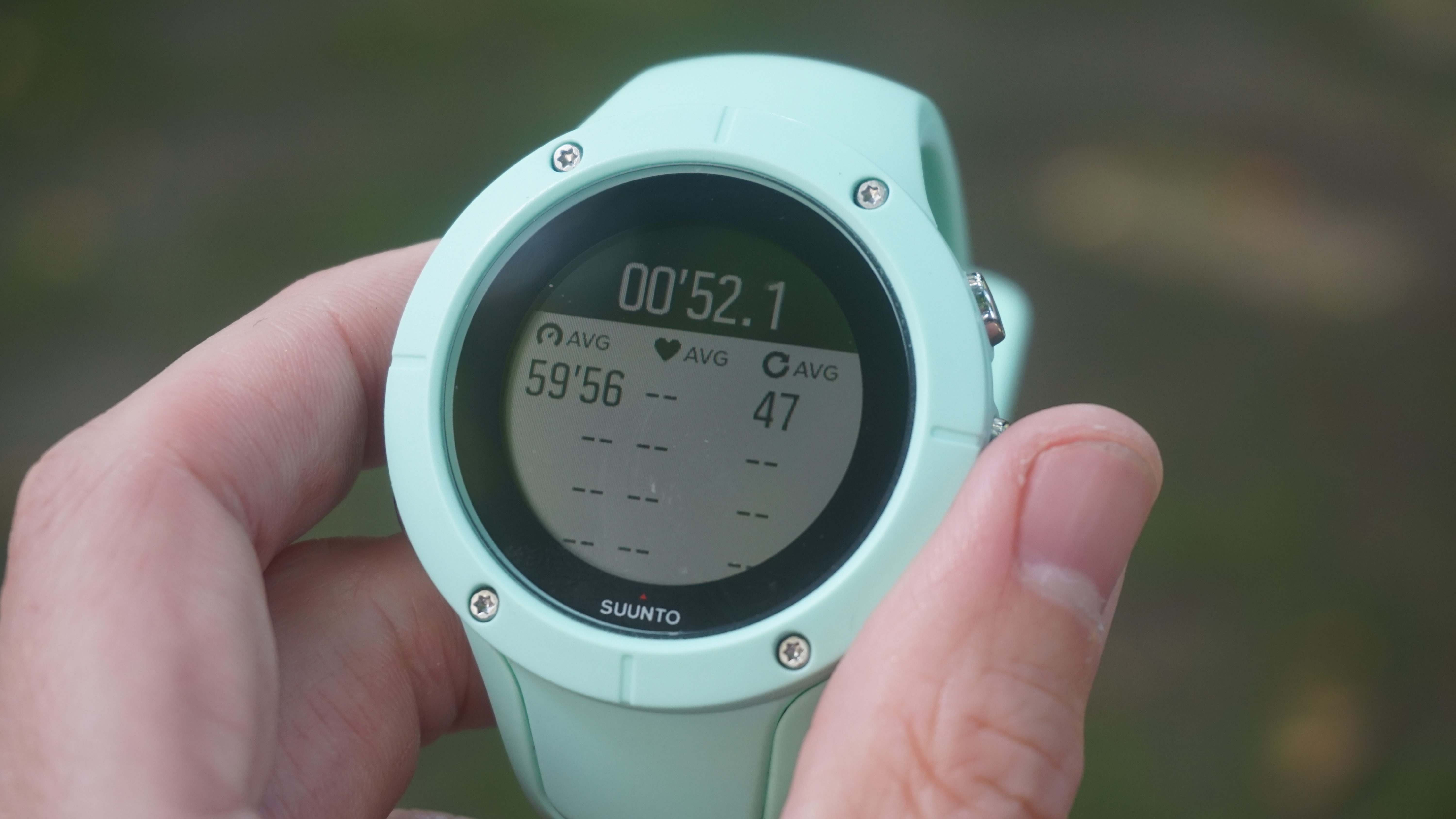
It’s cool that this watch is just so multisport - you can switch from one discipline to another very quickly, and there’s a dedicated triathlon section too which will record transition times with a long press.
It reacted well and was easy to use on the go, and getting the information up to services like Strava was generally pretty accurate. If it wasn’t for the weirdly-placed buttons, and the inability to change the displays on the go in an easy way, this would be a completely fine running watch.
But overall, the Suunto Spartan Trainer Wrist HR will log your runs / cycles / outdoor skiing well. You'll be able to get the key information at the right time and there’s a post-run 3D map that’s offered to show you where you ran, where you were fastest and when your heart rate hit the maximum.
Simple swimming

When it comes to swimming, the main strengths and weaknesses of the Trainer come to the fore once again. On the one hand, there's very little info made available by default, with things like lengths swum not an available metric, which seems insane.
However, it's the only watch we've tested that has such high heart rate accuracy despite the sensor being mounted to the wrist - most other watches want a chest strap to be certain, but the Suunto is very capable of being able to monitor what you're pumping while thrashing about.
It's a shame that you can't set more dedicated sessions from the app, so if you wanted to do more intricate drills that's not really possible, but the auto-understanding of reps within the session (being able to work out when you're resting) seemed to be pretty good with the Trainer.
You've also got outdoor swimming, using the GPS, as an option here - so if you're thinking of using this to monitor your next triathlon, it's got all the chops to do so (with a triathlon mode on offer as one of the workout styles).
Poor app, good maps
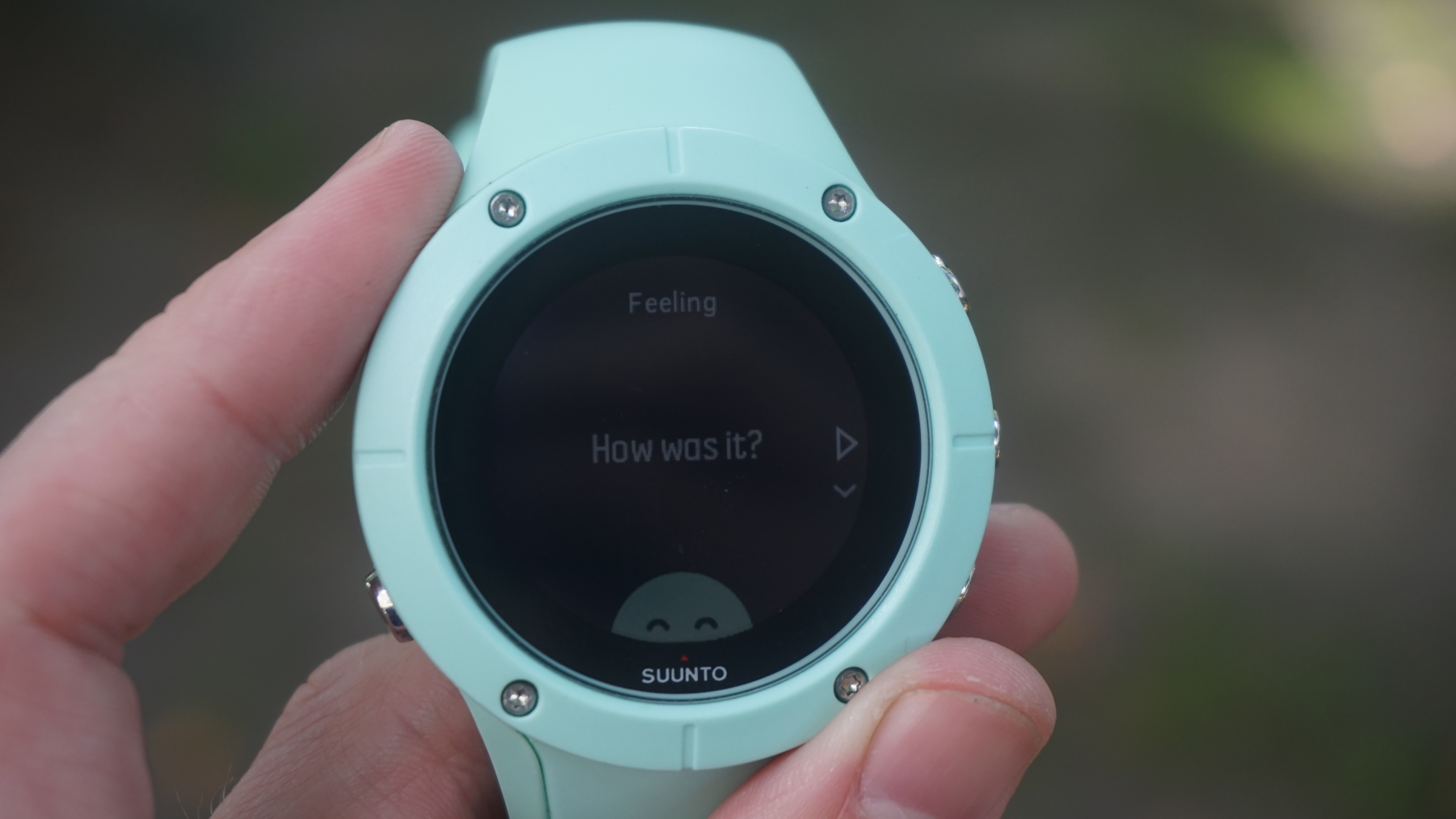
It's a shame that a brand that's worked so hard to bring itself into the modern age of running watches, combining prowess in sports science with smartphone integration, has let itself down in key areas still.
The Movescount app, the way you'll interact with the data you get from your watch, isn't the best for ease of use. Yes, you'll get powerful data, but most people would swap EPOC (excess post-exercise oxygen consumption) data for simpler syncing of their data to Strava.
Where the Garmin range will almost have your runs on Strava before you've finished a run (if you’ve got Wi-Fi connected), the Suunto app requires a dedicated sync and then a long wait while your workout is sent to the online portal.
And if you need to update the device, you have to do it by connecting the Trainer to a computer. Come on Suunto - we're living in a smartphone world now. Some people don't even have computers any more - you should be able to update from the app.
One great thing the app has though: a heat map of local workouts. So if you're in a new area or want to rediscover your own area, you can see where the popular routes are. We love using this, and it's fairly easy to create a route to follow on the Watch (although you have to do this via the web portal).
We do love using the navigation option on the Suunto Spartan Trainer Wrist HR - it’s very easy to follow and great for a new area, although we would have preferred being able to instantly download routes.
Slow interface

One of the most annoying things about the Suunto Spartan Trainer Wrist HR is the speed with which you can navigate through the watch.
You'll press a button, and often be left waiting a second or two for some reason. Want to start a run? Press the up button, then wait.
Finishing a run? Wait a couple of seconds before you can tell the Trainer Wrist HR whether you enjoyed it or not, then a few more seconds while it saves.
We were going to label this as nothing major, but the more we used the watch, the more it irked. We’ve seen countless other options on the market that can handle inputs rapidly, and there’s very little reason for all the myriad pauses on this device.
Battery life
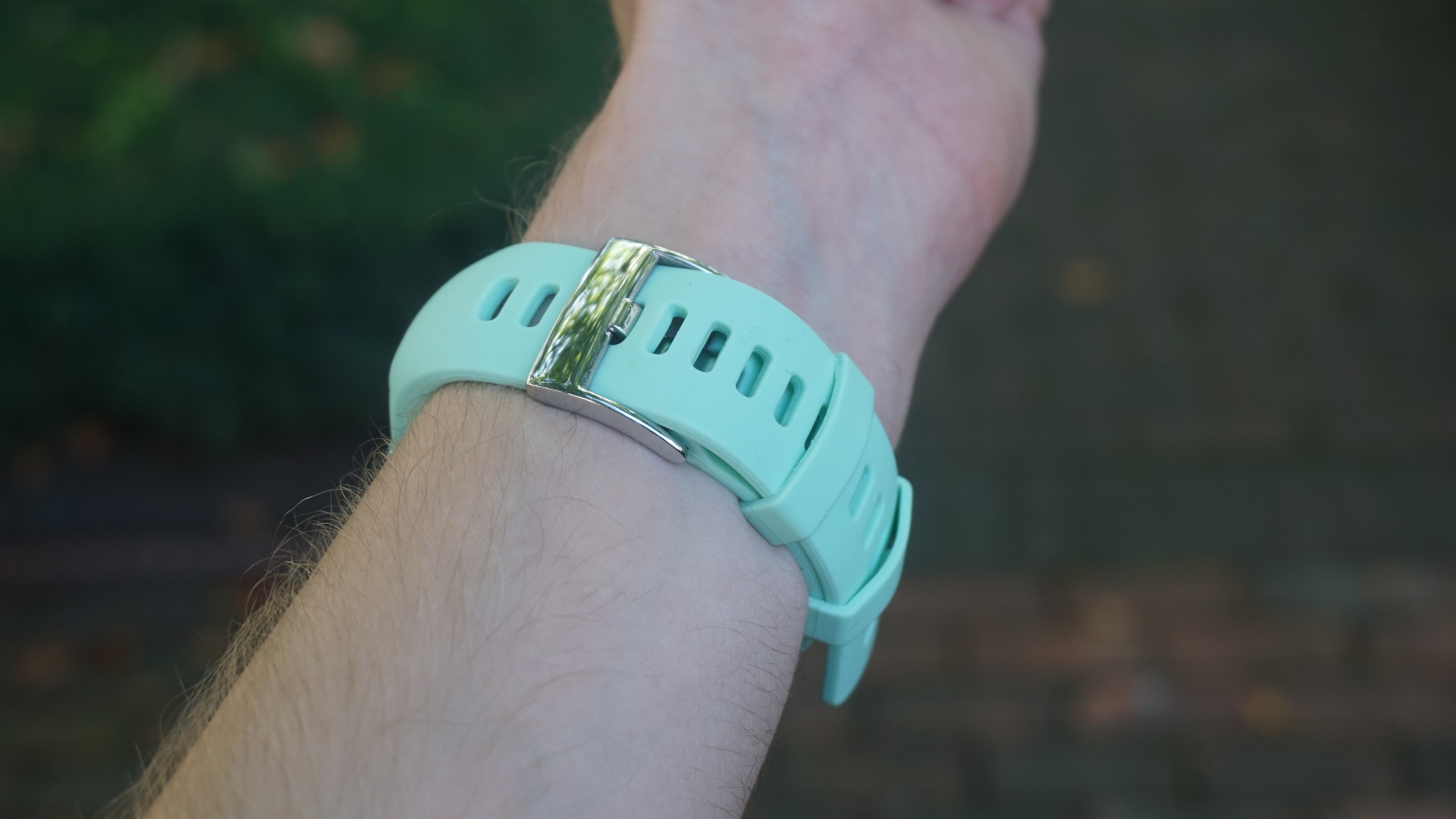
The battery life on the Suunto Spartan Trainer Wrist HR is pretty good - we got 3-4 days of constant use (with exercise each day) before needing to charge. You can see a small percentage readout of battery when choosing your exercise, so you’ll know how much battery you’ve got left before the start of your run.
It’s not the best we’ve seen during our time testing running watches - you’ll lose around 15% per hour on a standard run.
But if you're a marathon runner, you'll be fine with the Suunto Spartan Trainer Wrist HR - it'll last easily even with the heart rate monitor and GPS firing, and we'd estimate you'll get a good 5 hours out of it in one slug, if not more.
We wouldn't recommend it for ultra-runners though - slimming down the design has taken some power out, and while you can dial down the accuracy of the GPS to make things last a little longer, it's not going to take you over anything but the smallest of ultra races.
Anything else I should know?
The Suunto Spartan Trainer Wrist HR as a fitness tracker is far less impressive - yes, it does track your steps, and lets you know when you’re on track, but it’s not overly pushy or gives you much data to compare to.
The sleep tracking, a new addition, is far from impressive. It constantly gives you the wrong number when waking up (often saying you’ll have emerged from slumber far earlier than reality) and there’s no way to see your sleep on the app itself.
In short, it basically tells you that you’ve slept for less time than you have when awaking - and that can have a negative effect on your perception and make you feel more tired during the day.
Verdict
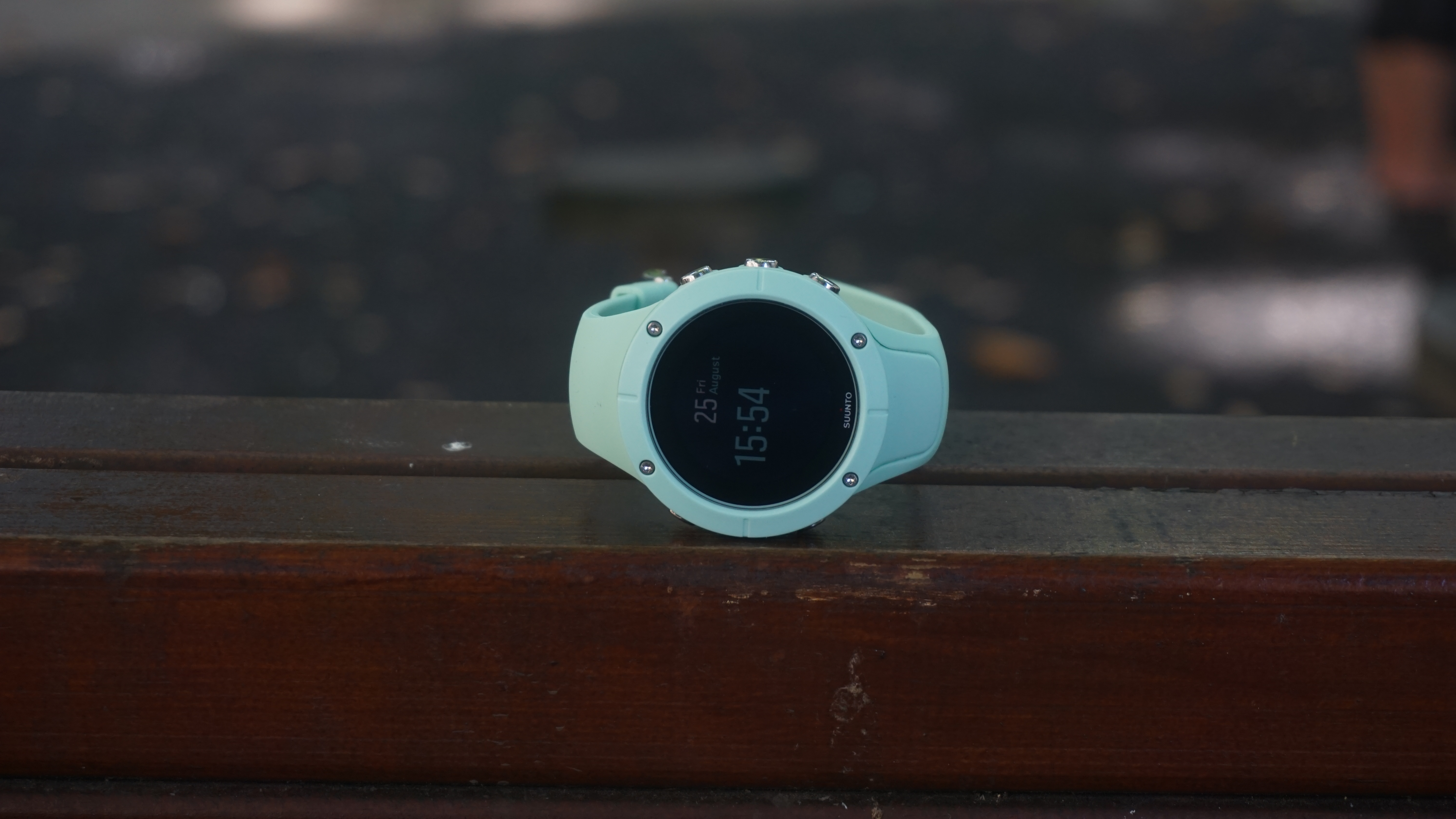
If you're going to buy the Suunto Spartan Trainer Wrist HR, know that you're getting a watch that's a compromise in a few ways to make the whole thing better.
The design is slimmer, the functionality strong and the heart rate monitor one of the best we've seen on the wrist. The accuracy of the GPS is also high, and it's a helpful little tool for logging your workouts of all varieties.
However, Suunto still doesn't feel like the most modern of sports watch brands. The interface isn't too attractive and is sluggish, the information takes a long time to sync, and it's maddening that you'll need to connect the watch to a computer to update the software.
There's a good watch lurking in here, but the color aside it's hard to say that we'd recommend this device over a variety of other strong options out there, despite the more palatable price.
Should I buy it?
If you want a slimmer watch but still crave a good-enough battery life with a very impressive heart rate monitor, then you'll get on with the Trainer Wrist HR.
It's the perfect watch for those that want to ditch the chest strap, but misses out on being an activity tracker (apart from monitoring your steps and giving random buzzes about calorie burn throughout the day). You wouldn't want to wear this in bed anyway, as there's no option to silence notifications during the night.
If you want something powerful for an ultra marathon, the Trainer Wrist HR isn't it. If you want a sleek watch to double as an activity tracker, the Trainer isn't that either. But it's a competent running watch that won't break the bank and will give you good information on your runs and upload to Strava - which is really the most important thing.
Not sure about the Suunto Spartan Trainer Wrist HR? Check these out instead!
Garmin Forerunner 235

The Garmin Forerunner 235 is probably one of the more impressive watches from the brand - it’s about the same price but has far more functionality for runners and a more interactive app to use.
It’s not multisport though, so it’s limited in its function. But it’s a sleeker watch attached to a more powerful platform, and gets good discounts around times like Black Friday etc.
- Read our full Garmin Forerunner 235 review
TomTom Spark 3
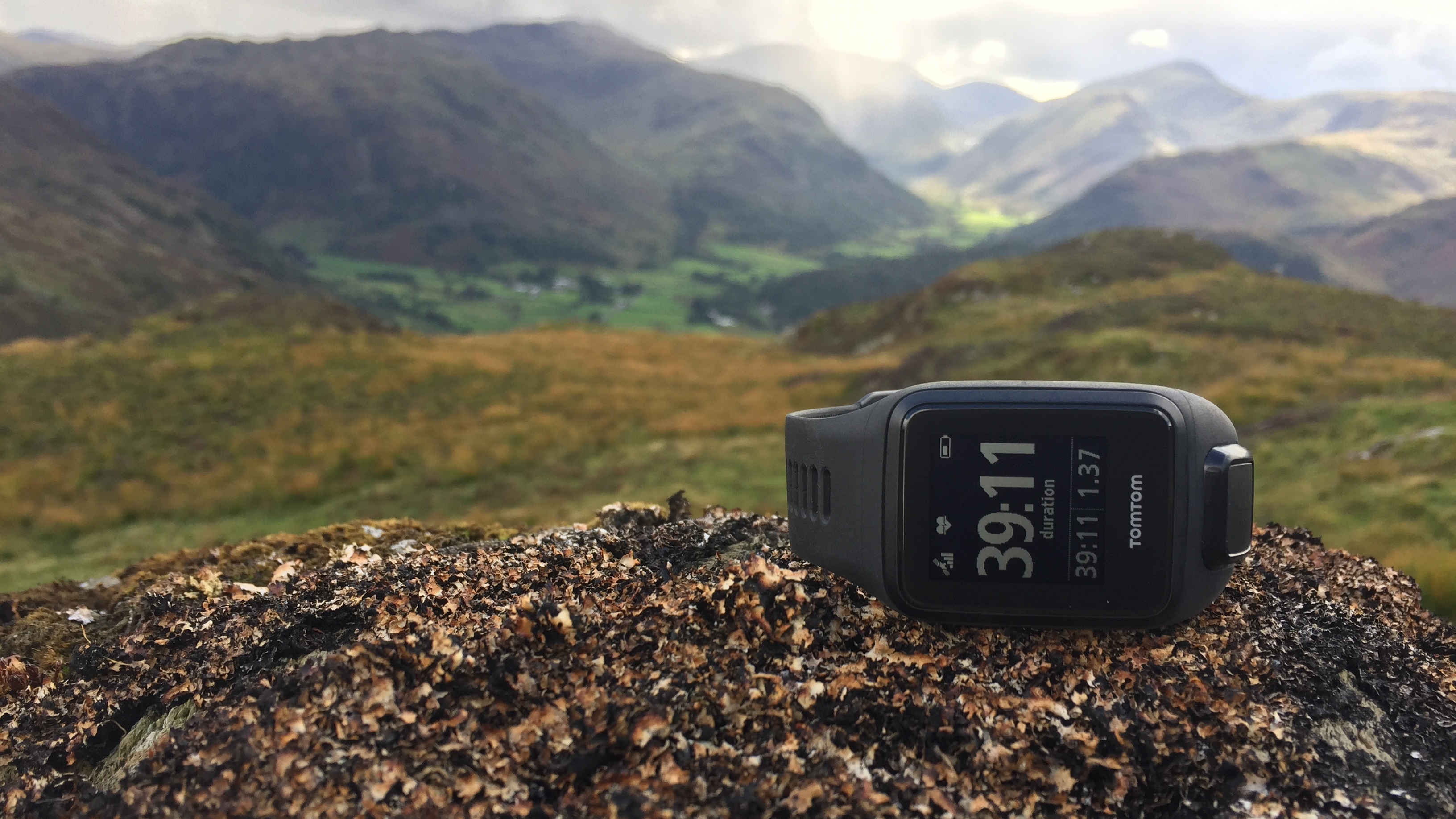
We like the Spark 3 as a cheaper option fitness tracker and running watch combination. It constantly gets discounted with a nice low price, and the ability to play back music over headphones (if you get the right model).
It’s not the most popular watch out there, but we rate it pretty highly - although, be warned, stocks are starting to get limited.
- Read our full TomTom Spark 3 review
Polar M430
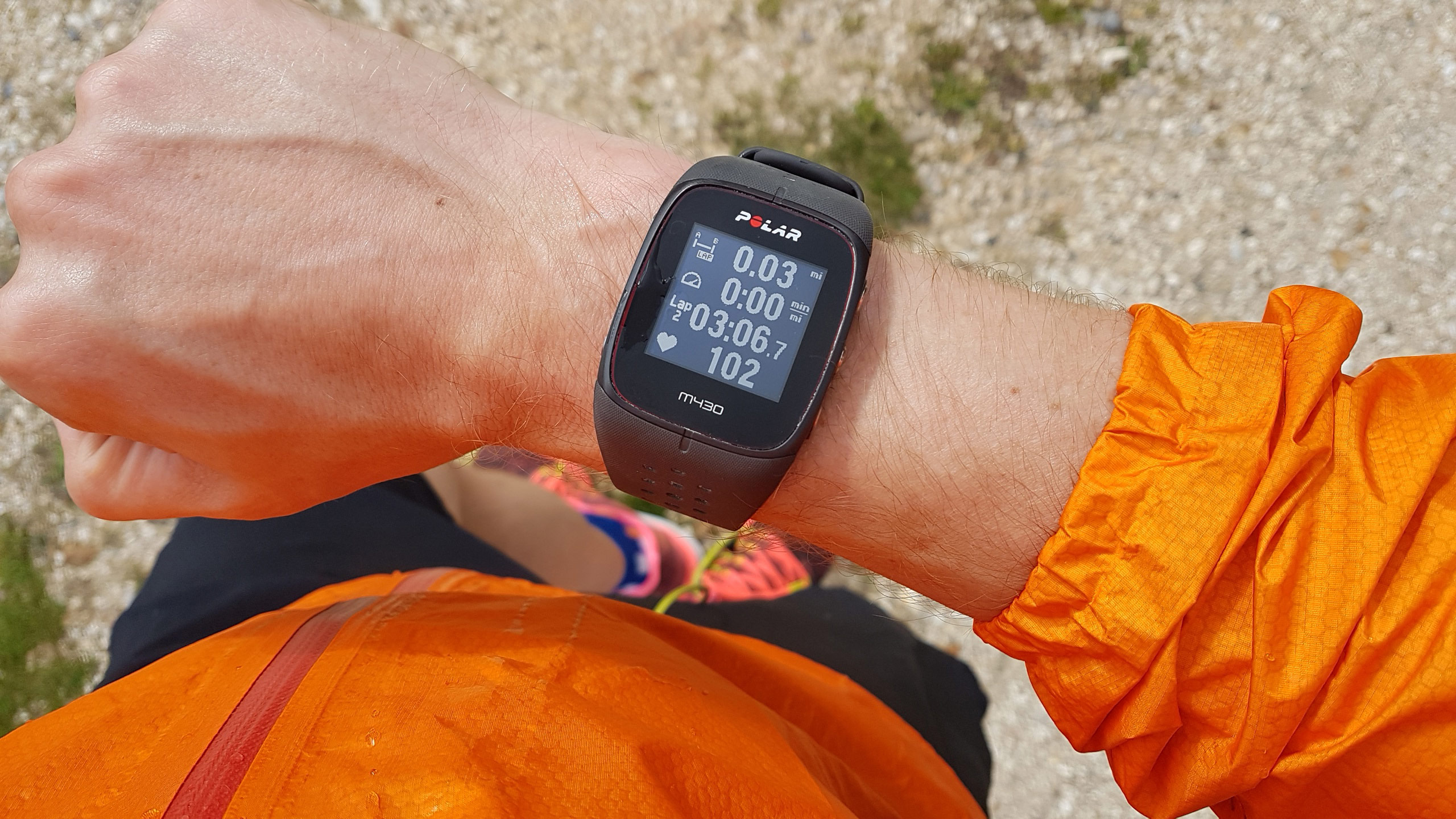
This is a nice step forward for Polar, with the brand making this a beautiful fusion of fitness tracking and form. Yes, the watch itself isn’t the best to look at, but it’s ruggedised and shows the basic information when working out.
It’s got a low price that puts it below the Spartan Trainer Wrist HR as well - and it destroys this watch when it comes to things like fitness and sleep tracking.
- Read our full Polar M430 review

Gareth has been part of the consumer technology world in a career spanning three decades. He started life as a staff writer on the fledgling TechRadar, and has grew with the site (primarily as phones, tablets and wearables editor) until becoming Global Editor in Chief in 2018. Gareth has written over 4,000 articles for TechRadar, has contributed expert insight to a number of other publications, chaired panels on zeitgeist technologies, presented at the Gadget Show Live as well as representing the brand on TV and radio for multiple channels including Sky, BBC, ITV and Al-Jazeera. Passionate about fitness, he can bore anyone rigid about stress management, sleep tracking, heart rate variance as well as bemoaning something about the latest iPhone, Galaxy or OLED TV.
